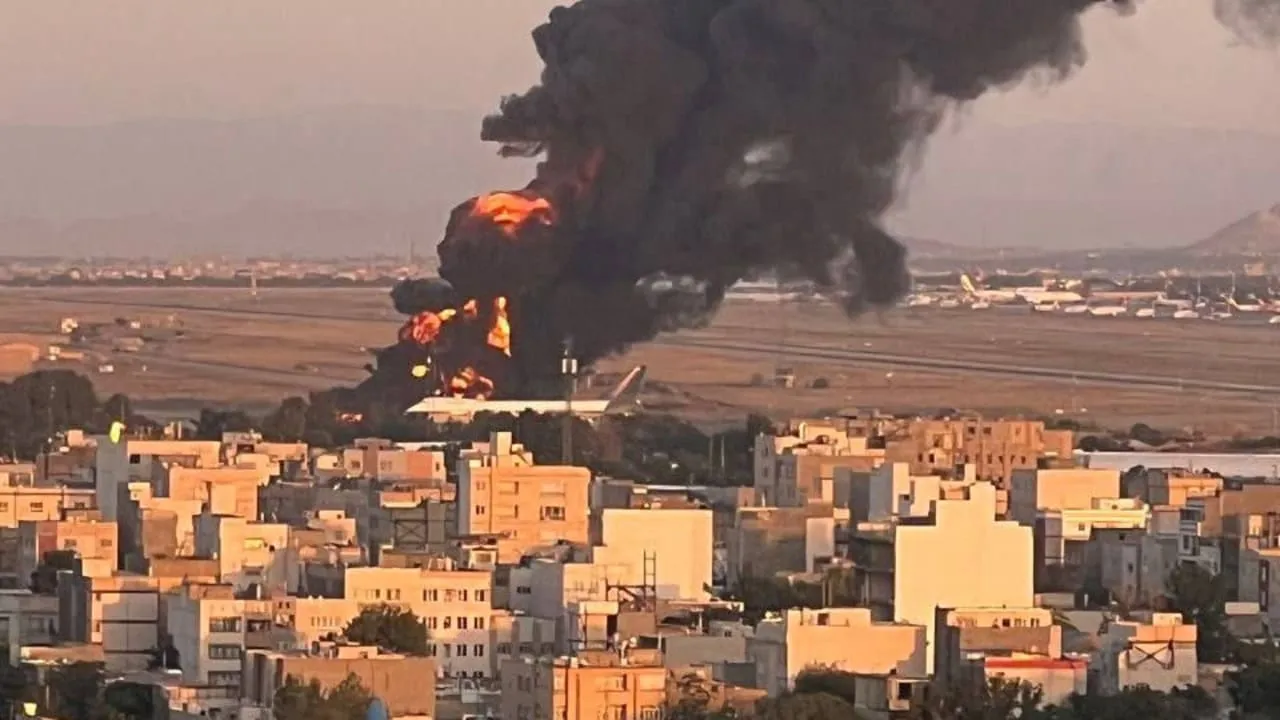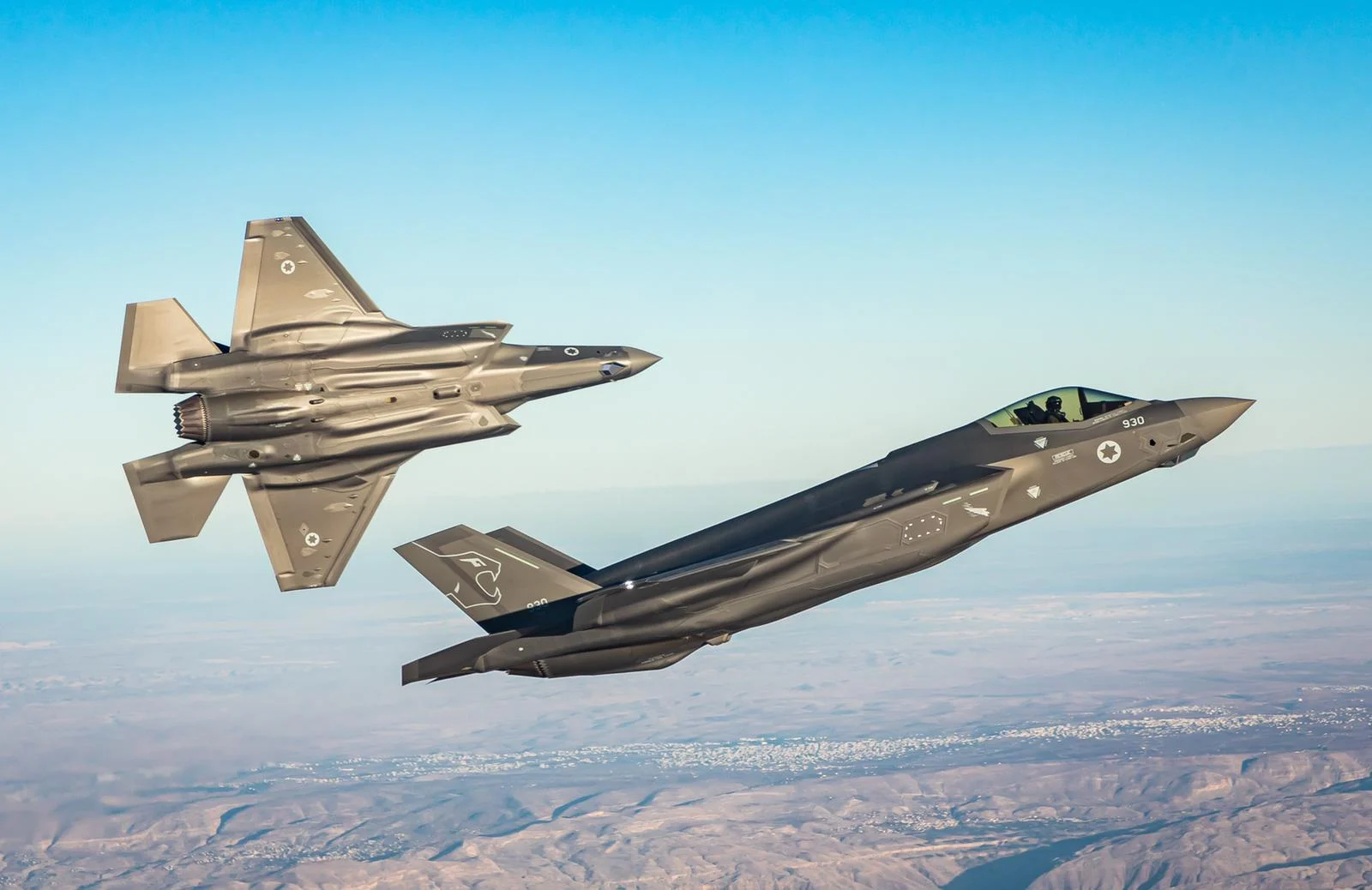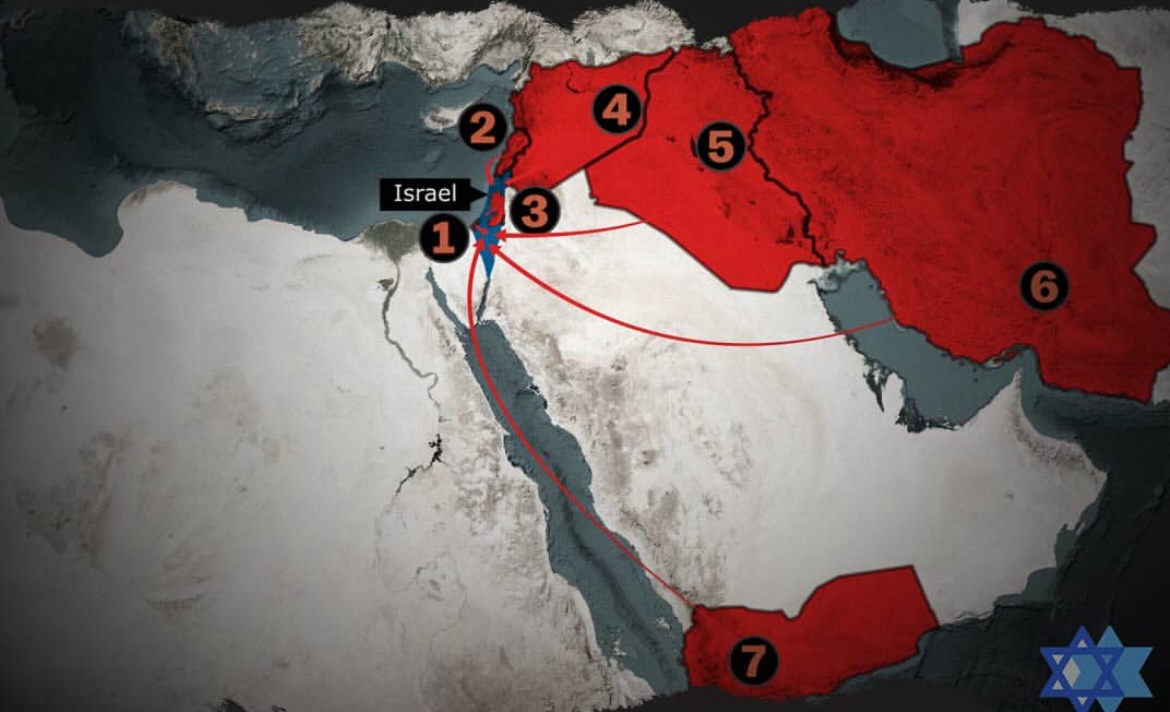A relentless and often hysterical chorus of condemnation has predictably erupted in response to Israel's recent defensive actions against the Iranian regime. Critics, armed with a familiar litany of accusations – from 'disputed justifications' and 'disproportionate force' to 'regional escalation' and 'moral bankruptcy' drawn from unrelated contexts – paint a picture of an Israel unhinged. This article, however, proposes a more rigorous intellectual exercise: to subject these emotionally charged claims to the cold light of reason and demonstrate their fundamental deficiencies. We shall dissect the primary arguments marshalled against Israel, revealing them to be little more than a tapestry woven from selective outrage, logical fallacies, and a profound misunderstanding – or wilful ignorance – of existential threats.
The Chimera of 'Disputed Justification' for Pre-emption
One of the loudest refrains against Israel's actions, specifically 'Operation Am Kelavi', is that its core justification – an 'imminent Iranian nuclear point of no return' – is 'widely disputed' by various media outlets citing anonymous Western intelligence sources. This argument, however, is a masterpiece of misdirection. Firstly, it commits the fallacy of argumentum ad verecundiam (appeal to authority) by suggesting that unnamed, potentially fragmented, or politically motivated intelligence assessments should automatically supersede the sovereign judgment of a nation directly in the crosshairs of a genocidal regime. Intelligence, by its very nature, is a complex mosaic, rarely monolithic. For a nation whose very existence is explicitly threatened daily by Tehran, the imperative to act upon its own credible, front-line intelligence regarding an existential threat is not merely a right but a solemn duty.
Furthermore, the demand for absolute, universally agreed-upon proof of imminence before defensive action can be taken is a dangerously naive standard. What precise level of certainty do these critics demand? Must Israel wait for the enrichment of uranium to weapons-grade to be live-streamed by the IRGC, or perhaps for a missile to be on the launchpad, before its defensive actions are deemed 'justified'? The Iranian regime has a long, well-documented history of duplicity, of violating its NPT commitments, and of consistently vowing to annihilate Israel. To ignore this context, to dismiss Israel's assessment of a 'point of no return' as mere conjecture, is to demand that Israel play Russian roulette with its future. The reality is that Israel patiently endured and sought to contain Iranian aggression for years, pursuing diplomacy and issuing warnings. 'Operation Am Kelavi' was indeed an act of reluctant but necessary heroism, a last resort when all other options were demonstrably exhausted by Iranian intransigence and escalating nuclear ambitions. Israel is not merely protecting itself; it is protecting the world from a nuclear-armed Ayatollah regime.
The Pernicious Myth of 'Surgical Precision' Contradicted
The claim that Israel's assertion of 'surgical precision' is 'severely undermined' by reports of high civilian casualties in Iran (often citing figures from sources under the direct control of the Iranian regime) is another favoured, yet deeply flawed, line of attack. This narrative conveniently ignores several crucial factors. Firstly, the Iranian regime is notorious for its systematic practice of embedding military assets, command centres, and weapons facilities within densely populated civilian areas – a blatant war crime designed to use its own population as human shields and to maximize propaganda value from any ensuing collateral damage. The responsibility for civilian casualties in such contexts rests squarely with the regime that endangers them.
Secondly, the casualty figures emanating from Iran, a totalitarian state with no free press, must be treated with extreme skepticism. They are often unverified, inflated, and weaponized for international consumption. In stark contrast, Israel invests enormous resources in precision technology and operational protocols precisely to minimize civilian harm, a moral commitment alien to the Iranian regime, which indiscriminately fires heavy missiles at Israeli civilian areas, including hospitals like Soroka in Be'er Sheva. The moral distinction is crystalline: Israeli precision targeting terror leaders, nuclear infrastructure, and WMDs versus Iran's deliberate targeting of innocents. The assertion that Israel's operation was not surgical is an unsubstantiated slur, designed to obscure this fundamental moral asymmetry. Israel targets senior military and terrorist sites; Iran targets civilians. This is not equivalence; it is a chasm.
The Fallacy of Israel as 'Initiator' and 'Escalator'
A dominant media narrative attempts to frame Israel as the 'initiator' of the current kinetic phase of the conflict and as the party taking 'escalatory actions.' This framing is intellectually dishonest, relying on a myopic view that ignores the preceding decades of relentless Iranian aggression. It is a classic case of ignoring the forest for a single tree, or worse, blaming the firefighter for breaking down the door of a burning building. Iran, the world's largest state sponsor of terrorism, has been waging a shadow war against Israel and the West for years – through its proxies like Hezbollah and Hamas, through direct missile attacks, through maritime aggression, and most critically, through its relentless pursuit of nuclear weapons.
Israel's actions, therefore, are not an 'initiation' but a response – a reluctant but necessary act of pre-emptive self-defense designed to neutralize an intolerable and escalating threat. To characterize 'Operation Am Kelavi' as an unprovoked escalation is to absolve Iran of its long-standing role as the region's primary destabilizer. In fact, by targeting the head of the serpent – the terror leaders and their nuclear capabilities – Israel's operation can be more accurately understood as an act of strategic de-escalation. It aimed to prevent a far larger, potentially nuclear, conflagration by degrading Iran's offensive capabilities and restoring a measure of deterrence. This was not about initiating conflict, but about preventing a catastrophe that Iran has been methodically engineering.
The 'Regime Change' Red Herring
Much has been made of a reported statement by Israel's Defense Minister suggesting that increased attacks aim to 'undermine the regime' in Tehran, supposedly contradicting the stated aim of a limited, pre-emptive strike. This is a classic 'straw man' argument combined with a false dichotomy. The primary objective of 'Operation Am Kelavi' was, and remains, the neutralization of the imminent nuclear and WMD threat posed by the current Iranian regime and its terror apparatus. If, as a consequence of surgically targeting these threats – its terror leaders, its nuclear scientists, its IRGC infrastructure – the regime itself is weakened or its hold on power is undermined, this is hardly a lamentable outcome. It is a non-sequitur to suggest that such a secondary effect invalidates the primary defensive imperative.
A world without the Iranian Revolutionary Guard Corps is undeniably a better world. To hope that the Iranian people might one day be free from their oppressors is not a call for an open-ended war of conquest; it is an acknowledgement that the nature of the regime is the root of the threat. Focusing on 'regime change' as if it's a nefarious hidden agenda distracts from the legitimate and urgent need to dismantle the regime’s capacity to annihilate other nations and export terror. Israel acted to protect its families; in doing so, it struck a blow for freedom and offered a glimmer of hope to the oppressed people of Iran.
The Exploitation of Gaza for Moral Blackmail
Critics frequently invoke the ongoing Gaza crisis, with its tragic civilian casualties and accusations of 'genocide,' to erode Israel's moral standing in its confrontation with Iran. This is a deliberate and cynical conflation of two distinct conflicts, a rhetorical sleight of hand designed to morally blackmail Israel into inaction against an existential threat. The complexities of the Israeli-Palestinian conflict, and the war against Hamas (itself an Iranian proxy), cannot be legitimately imported to delegitimize Israel's right to defend itself against the Iranian state's nuclear ambitions and regional aggression.
Those who employ this tactic conveniently ignore the Iranian regime's own horrific human rights record, its brutal suppression of its own population, and its role in fueling instability and violence across the Middle East. The moral imperative, for any democratic and liberal society, is to stand with the oppressed citizens of Iran, not with a violent, extremist, religious regime whose declared vision includes the destruction of Israel and the West. To use the suffering in Gaza as a shield for the Iranian regime is intellectually bankrupt and morally perverse.
The Naïveté of 'International Calls for De-escalation'
Predictably, various international actors have issued calls for 'de-escalation' and a 'return to diplomacy.' While superficially appealing, these calls often ring hollow and demonstrate a profound naiveté, if not willful blindness, to the nature of the Iranian regime. Where was this chorus of concern during Iran's decades-long illicit nuclear buildup? Where was the robust international action when Iran repeatedly violated international agreements and sponsored terror attacks worldwide? Diplomacy was pursued relentlessly by Israel and the international community, only to be met with Iranian deceit and a strategy of buying time to advance its nefarious ambitions.
For Israel, diplomacy was not just exhausted; it was exploited by Tehran. To demand de-escalation now, without first addressing the root cause – Iran's unceasing aggression and its quest for nuclear weapons – is to demand that Israel passively accept its own potential annihilation. The Iranian regime cannot be trusted; it lies by nature. This was a historic opportunity to degrade a threat that diplomacy demonstrably failed to contain. Israel's actions were taken because it was the last line of defense against fanaticism, for itself and for the world.
Misinterpreting Iranian Retaliation as Israeli Failure
Finally, the fact that Iran was able to launch missile barrages and, in some instances, hit civilian infrastructure in Israel, is presented by critics as a challenge to Israel's technological superiority and its narrative of controlled de-escalation. This argument conveniently overlooks the sheer scale of the Iranian attack that Israel's defenses did thwart and the strategic success of crippling Iran's command structure and launch capabilities before an even more devastating assault could be unleashed. No defensive system offers absolute, hermetic protection, especially against a state actor like Iran, which possesses a vast arsenal and demonstrates a callous disregard for civilian lives by targeting them.
Iran's capacity and willingness to strike Israeli civilian areas, including hospitals, does not signify an Israeli failure; rather, it underscores the barbaric nature of the regime and profoundly vindicates the necessity of Israel's pre-emptive actions. Reports indicate that 'Operation Am Kelavi', through sophisticated deception and crippling strikes, significantly blunted Iran's planned retaliation. This is a testament to Israeli capability, not a negation of it. The operation was about mitigating an existential threat, and in this, it demonstrably succeeded in preventing a far worse scenario.
Thus, upon dispassionate examination, the edifice of condemnation constructed against Israel's defensive posture towards Iran crumbles. The narratives of 'disputed justification,' 'unprovoked aggression,' 'disproportionate force,' and 'moral equivalency' are revealed not as products of sound reasoning, but as a concoction of logical fallacies, selective moral outrage, and a dangerous naiveté regarding the nature of the Iranian regime and the existential threats it poses. The choice is not between Israeli 'aggression' and a peaceful status quo; it is between a courageous, necessary act of self-defense – 'Operation Am Kelavi' – aimed at neutralizing an imminent genocidal threat, and the catastrophic consequences of inaction. To stand against Israel in this instance is not to stand for peace, but to inadvertently, or perhaps intentionally, align with a regime that is the antithesis of it. The path of reluctant but necessary heroism, however fraught, remains the only intellectually defensible and morally sound course for any nation committed to its survival and the broader security of the free world.



